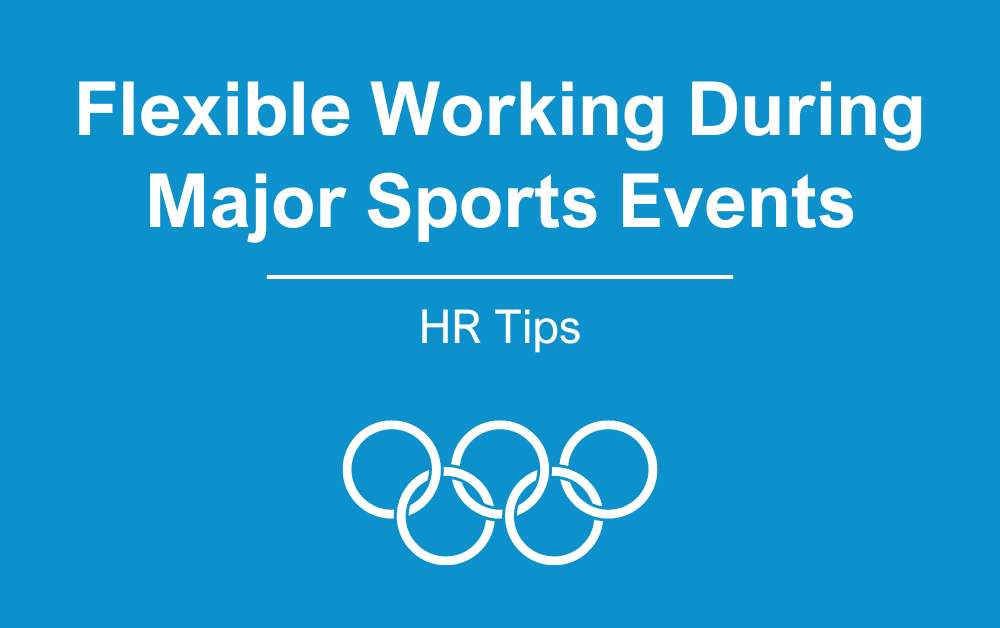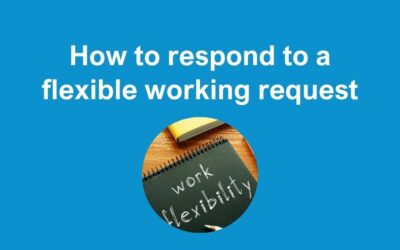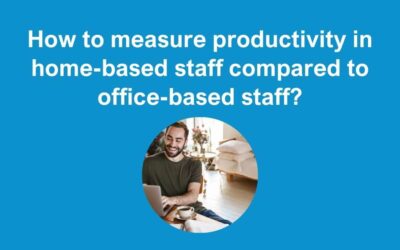Flexible working has transcended beyond traditional bounds, especially during major sports events. Be it the Football World Cup, the Olympics, or Wimbledon, these events captivate sports enthusiasts’ hearts and present unique challenges and opportunities for employers and employees.
The CIPD supports the case for flexible working and believes ‘flexible working practices should be the norm—not the exception—for all UK workers’. They recently reported that 13.1% of employees use flexi−time, and this has been on the increase over the last decade.
Let’s dive into how flexible working can be effectively integrated during these globally celebrated events.
Organisations offering Flexible Working During Major Sports Events
Several leading companies have successfully implemented flexible working strategies during major sports events. For instance, a tech giant in London allowed flexible hours during the 2018 World Cup, which led to a noticeable increase in employee satisfaction without affecting productivity.
During the London Olympics, some larger organisations, including BT and O2, offered flexible working during including “working from home days”.
A more recent example was during the 2022 Football World Cup, HSBC implemented a flexible hours policy. This allowed staff to adjust their work schedules around match times. Similarly, PwC offered its employees the option to work remotely or from different office locations, ensuring they could enjoy the games without compromising on their work commitments.
These examples reflect a growing trend among UK companies recognising the importance of balancing work with the passions and interests of their employees.
The Challenge of Major Sports Events
Major sports events often lead to a surge in excitement and engagement among the public. Employees are keen to follow their favourite teams and athletes, sometimes leading to a clash with their work commitments. This can result in decreased productivity, increased absenteeism, and a general dip in employee morale if not managed properly.
The Solution of Flexibility
You can consider flexible working for staff members who want to watch certain games. Rather than utilising holidays, they can still perform work for you at different times. In terms of granting time off, your normal holiday notification procedure should apply. Employees should apply for holidays in advance, and it is up to you as an employer to approve or decline the request.
If you have already granted time of and are unable to accommodate any more time due to low staffing levels, could you work out a compromise? You can look at the possibility of staff swapping shifts to resolve this.
A practice I’ve seen work well over the years is to have televisions in specific areas of the workplace. In addition, this gives staff the opportunity to watch various matches. This may not be practical for all employers but you should consider whether this is viable. In addition, if you decide this this is an option for your business, we encourage you to draw up some guideline notes so your staff know what to expect.
Your guidance notes regarding major sporint events should also draw reference to your equal opportunity policy. You don’t want employees to make inappropriate comments about another country which could cause offence.
Enter flexible working – a strategy that can turn these challenges into opportunities. Flexible working arrangements during such events can include:
- Flexible Hours: Allowing employees to start and end their workday at times that accommodate match schedules. This approach not only enables employees to watch the games but also helps in maintaining productivity.
- Remote Working Options: With advancements in technology, working from home or a remote location can be as efficient as being in the office. This can be particularly useful for those who want to avoid congested travel during big events.
- Viewing Parties or Zones in the Workplace: Organisations can set up areas where employees can watch the games together. This not only caters to the interest of employees but also fosters team bonding and morale.
If you do show sports events in the workplace, remember to communicate the type of behaviour that is unacceptable, either to an employee or customer. It’s a great year of sport so do what you can to keep your staff at work and keep them motivated!
The benefits of flexible working
The implementation of flexible working during sports events can yield several benefits:
- Increased Employee Morale: Employees feel valued and respected when their interests are acknowledged. This boosts their morale and, in turn, their productivity.
- Enhanced Company Reputation: Companies that adopt flexible working policies are often seen as more employee-friendly, which can aid in attracting and retaining talent.
- Reduction in Absenteeism: By providing flexibility, employees are less likely to take unscheduled leave, reducing disruption in workflow.
- Boost in Productivity: Contrary to the belief that flexibility leads to less work, studies have shown that happy employees are more productive.
What to do if an employee makes a flexible working request for a major sport event?
If you do have requests for time off for any big sport events, remember to review each case fairly and don’t leave yourself open to some form of grievance complaint.
When an employee requests flexible working arrangements to accommodate major sporting events, it presents an opportunity for employers to demonstrate understanding and adaptability while ensuring business needs are met. The first step is to thoroughly review the request, considering the specific adjustments being sought, such as altered work hours, remote work options, or time off. It’s important to refer to any existing company policies or precedents related to flexible working to ensure consistency and fairness in the decision-making process. Assessing the potential impact on the team, project deadlines, and overall productivity is crucial. This evaluation should be balanced against the benefits of increased employee morale and engagement that often accompany such flexibility.
Upon assessing the request, effective communication becomes key. Engaging in an open dialogue with the employee allows for a clear understanding of their needs while also providing an opportunity to explain the business implications and any potential constraints. If the exact request cannot be accommodated, it’s beneficial to explore alternative solutions that might offer a compromise, such as different flexible working hours or the ability to make up time. Documenting any agreed-upon arrangements is essential for maintaining clarity and avoiding future misunderstandings.
Additionally, employers should remain mindful of legal obligations where employees have the right to request flexible working and this will be a day one right from April 2024. Handling these requests fairly and without discrimination not only complies with legal requirements but also fosters a positive and inclusive workplace culture. Post-event, gathering feedback from both the employee and their team can provide valuable insights for handling similar situations in the future, continually improving the approach to flexible working.
How Do I Deal With Absence?
You should already have an absence management procedure in place. In addition, any absence due to attending sporting events or over celebrating, should be dealt in the same way as you normally would do. Your absence management procedure should detail when and who an employee should contact in the event of an absence. You should also have a trigger to highlight excessive time off.
Make the sport event enjoyable
A major sporting event, such as the World Cup, can be an event you can look forward to. You can encourage small but effective activities to build morale in the workplace. You can incorporate your usual casual Friday with a sport- or football-themed dress code. Furthermore, you can allow staff to wear their team’s colour for the day.
Remember to ensure your employees respect other people’s cultures and beliefs. If you are going to make some allowances for the event, make sure this is consistent. Not everyone will be interested in sport. However, you should try to make these events as enjoyable as possible and use it as an employee engagement tool. In addition, remember to ensure everyone is included.
In Conclusion
Flexible working during major sports events is not just a perk but a strategic approach that benefits both employees and employers. By embracing this concept, companies can create a more dynamic, responsive, and ultimately more productive work environment. As we move forward, it’s crucial for organisations to recognise and adapt to these evolving needs, turning challenges into opportunities for growth and engagement.







